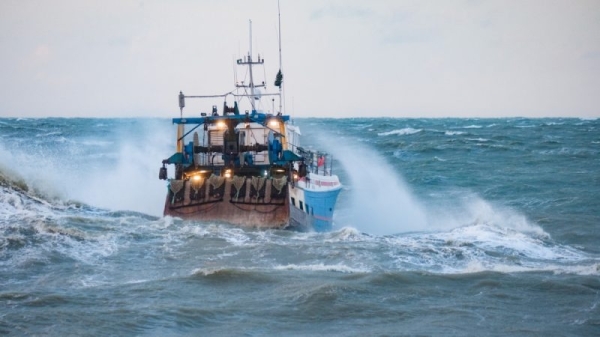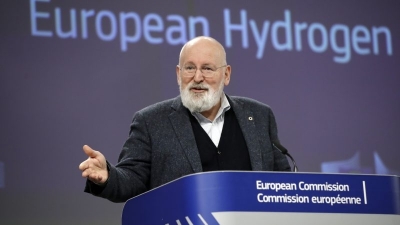Commission, MEPs call on members states to act jointly on fishing bans

In the wake of a dispute between France and Spain over a fishing ban in the Bay of Biscay, the European Commission and MEPs reiterated the need for such bans but called for coordination between member states when enforcing them.
As France’s disputed suspension of fishing in the Bay of Biscay – from 22 January to 20 February – draws to a close, the European Parliament’s Committee on Fisheries debated on Monday, 19 February, on the legitimacy of this unilateral decision and its future.
Last December, under pressure from NGOs and following an injunction from the Council of State, the French government closed fishing in the Bay of Biscay for one month to vessels over eight metres long equipped with certain pelagic nets, trawls and seines to reduce the mortality of dolphins, which fishermen had unintentionally trapped.
According to the International Council for the Exploration of the Sea (ICES), around 9,000 common dolphins die every year as a result of accidental capture on the French Atlantic coast, whereas the “sustainable” number of deaths should not exceed 4,900.
However, these seasonal bans of one month remain “insufficient”, said Maja Kirchner, the Commission’s representative to MEPs. In comparison, the ICES recommends closing three months in winter and one month in summer in the best-case scenario. Kirchner also called on the member states to make such decisions jointly in the future.
“The aim is that next winter, in 2024-2025, these measures will already be in place”, added Ms Kirchner.
Lack of consultation
With over 450 French boats and around 40 Spanish boats docked for the past month, the industrial fishing sector has been highly critical of France’s unilateral measure.
“How can France unilaterally close its waters to all EU vessels without prior consultation, just four days before the closure and without providing any compensation?” asked Esben Sverdrup-Jensen, president of the European Association of Fish Producers’ Organisations (AEOP).
Luis Planas, Spain’s minister for agriculture, fisheries and food, recently gave assurances that his fishermen would receive aid, while the French government has promised compensation of “80 to 85% of turnover for professionals banned from fishing”.
The Commission representative said these French requests are “currently being examined” by DG Competition, the Commission directorate responsible for state aid.
According to Clara Aguilera MEP, “France took its measure without consulting the Spanish government”, so the Commission must “call France to order”. Of the 41 Spanish vessels affected by the ban, only half have been able to redirect to other fishing grounds, she points out.
Dutch MEP Bert-Jan Ruissen (ECR) also condemned the decision, which was taken “in haste” and without consultation. “France has its share of responsibility”, acknowledged Caroline Roose (Greens).
Maja Kirchner pointed out that there had been prior discussions between France, the Commission and the Member States on “the nature of the measures to be implemented”.
However, as no common ground was found, France had to comply with the Conseil d’État ruling.
Longer joint bans
According to the Commission, longer-term closures can only be imposed through collaborative action from member states.
Indeed, Article 13 of the Common Fisheries Policy (CFP) regulation stipulates that emergency measures must be adopted “only after consultation of the Commission, the member states concerned and the relevant Advisory Councils on the draft measures, accompanied by an explanatory memorandum”.
The Commission is now encouraging member states to set up working groups at the regional level – as provided for in the CFP since 2013 – such as a “south-western waters” group between France and Spain.
“Member states need to agree on longer closures, which can be done quickly,” concluded Kirchner.
At the same time, the Commission is encouraging member states to step up research into bycatch prevention techniques (sound and light repellents, etc.) using European funds.

EU Parliament calls for looser environmental rules in Common Fisheries Policy reform
The European Parliament voted on Thursday (18 January) in favour of two own-initiative reports on EU fisheries pushed by the conservative EPP, which drop some environmental bans and focus on fleet competitiveness, effectively calling for a reform of the bloc’s Common Fisheries Policy.
Read more with Euractiv



